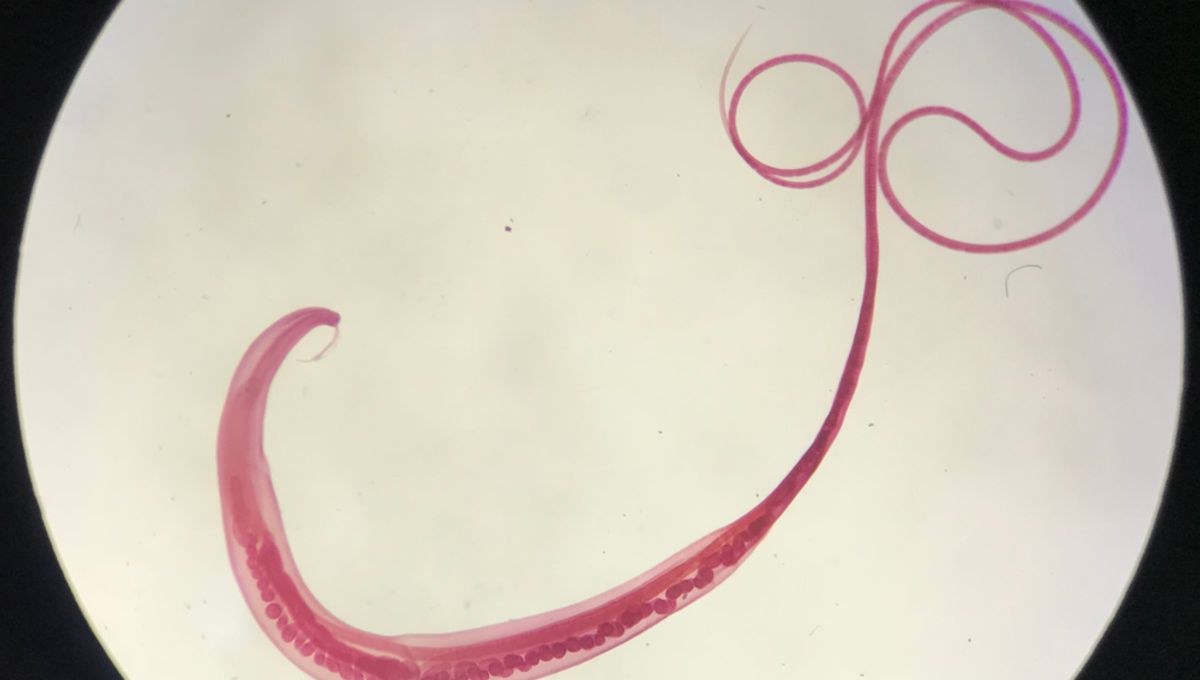
Viking poop is helping to tell the story of humankind’s long and difficult relationship with one of the most prolific parasitic worms found in the world – the whipworm (Trichuris trichiura).
By creating the first in-depth and complete genetic mapping of the whipworm, researchers from the University of Copenhagen in Denmark have revealed how the parasite sat in the guts of humans throughout their many historical migrations, obtaining a free world tour while they were at it.
Wherever we went, they came too. Early samples from Uganda and baboons suggest that the parasite likely originated in Africa before joining humans on their migrations into Asia approximately 55,000 years ago. Its entry into Europe is less clear, but it’s likely that it hitched a ride here at some point when human populations migrated.
In a completely separate migration, the well-traveled worm also ended up in the Americas, presumably during a human migration across the Beringia land bridge that connected Eurasia and North America until approximately 11,000 years ago. It was then perhaps seeded into the Americas once again through the Trans-Atlantic slave trade.
As reported in the journal Nature Communications, the team reached these findings by carrying out a genetic analysis of fossilized eggs found in Viking settlements around Europe. They then compared it with genetic samples of whipworms taken from across Africa, Central America, Asia, and Europe.
The Viking poop samples came from fossilized eggs found in latrines of settlements in Denmark, Latvia, and the Netherlands, some of them dating back 2,500 years. Despite being centuries old, their genetic material managed to remain remarkably undamaged thanks to the extremely durable chitin in egg capsules and the surrounding moist soil.
“We have known for a long time that we could detect parasite eggs up to 9,000 years old under a microscope. Lucky for us, the eggs are designed to survive in soil for long periods of time,” Professor Christian Kapel, from the University of Copenhagen, said in a statement.
“It has been quite surprising to fully map the genome of 1,000-year-old well-preserved whipworm eggs in this new study.”
Like all “great” pathogens, whipworms learned the subtle art of going undetected. Although they can cause problems for people with weakened immune systems, these worms can live undetected in the intestines of healthy people for months.
Growing up to 5 centimeters (2 inches) in length, the females will happily sit in the intestines and lay thousands of eggs each day. These eggs are eventually pooped out where they can survive in the soil for months. Here, they will patiently wait for the next host to consume them, thereby completing the life cycle.
All of this depends on hosts consuming food that’s essentially been contaminated with infected poop. Due to modern hygiene standards, this means whipworm has become increasingly uncommon in the developed world.
However, to due ongoing global inequality, whipworm still has an unpleasantly close relationship with humankind, infecting some 604 to 795 million people in the world at any given time.
Despite our best efforts, whipworms still have a tight hold on their human companions.
“During the Viking Age and well into the Middle Ages, one didn’t have very sanitary conditions or well-separated cooking and toilet facilities. This allowed the whipworm far better opportunities to spread,” explained Kapel.
“Today, it is very rare in the industrialized part of world. Unfortunately, favorable conditions for spreading still exist in less developed regions of the world.”
Source Link: Ancient Viking Poop Shows How Gut Worms Are Humankind's Closest Companion